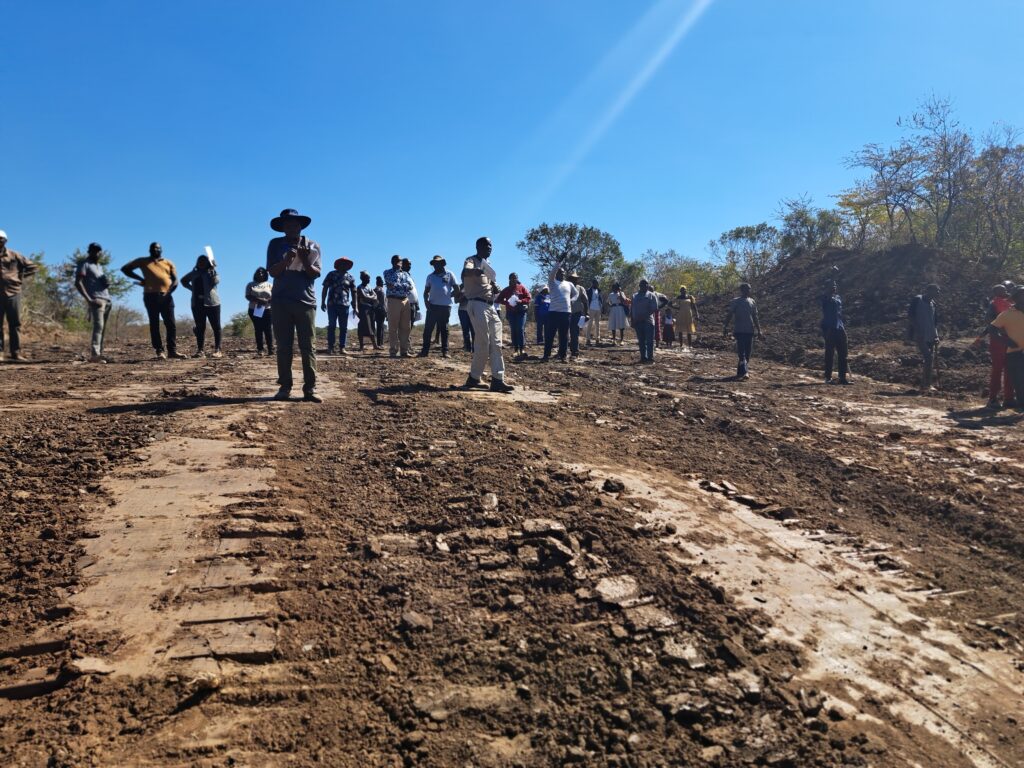
Participants to the Green Roads for Water initiative take a transact walk on the proposed route for the road as part of the practical training.
The Smallholder Agriculture Cluster Project is pioneering the Green Roads for Water initiative in the road network that it is rehabilitating under its Climate Proofed Value Chain Infrastructure initiative. This follows training of engineers in July by MetaMeta, based in Nairobi, Kenya and supported by a civil engineer from Makueni County, Kenya.
Thirty engineers drawn from the Smallholder Agriculture Cluster Project, the Rural Infrastructure Development Agency (RIDA), the Department of Irrigation and the Zimbabwe National Water Authority (ZINWA) and rural district councils (RDCs) underwent a five day training course which included in-class training and a practical session.
The Green Roads for Water intervention will be implemented in the 89km of roads currently under rehabilitation and construction under Smallholder Agriculture Cluster Project. RIDA which is responsible for the construction of the majority of Zimbabwe’s road network expressed interest in adopting the intervention in both SACP and non-SACP provinces.
The Green Roads for Water Initiative aims to transform the way roads are built and maintained all over the world by incorporating water management and re-greening in the design and construction of roads. The aim is to improve livelihoods and resilience of communities living around roads and reduce the negative impacts such as erosion, flooding, sedimentation, and dust while improving the climate resilience of road infrastructure itself and reduce water-related road damage. The advantages of intervention include;
- reduced erosion on the roads
- reduced demands for maintenance which reduces requirements for funding directed at road maintenance
- availability of water for agriculture for roadside farming communities
- ground water recharge
The initiative has been implemented in countries such as Bangladesh, Bolivia, China, Ethiopia, Kenya, Liberia, Mozambique, Nepal, Portugal, Sudan, Tajikistan, Uganda, Yemen, and Zambia. During the training, experiences and lessons learnt were drawn from both Makueni County and Ethiopia where the initiative has been successfully implemented. Water harvested from the road network has been used for agricultural activities as well as recharging the ground water system for roadside communities.
The following lessons were drawn from the training;
- -Success of the intervention requires stakeholder engagement
- -Through water harvesting, the intervention has potential to avail water for agriculture use.
- -The intervention can also be useful in the recharge of groundwater systems
-There are opportunities to for environmental conservation such as tree and grass planting on the roadsides
